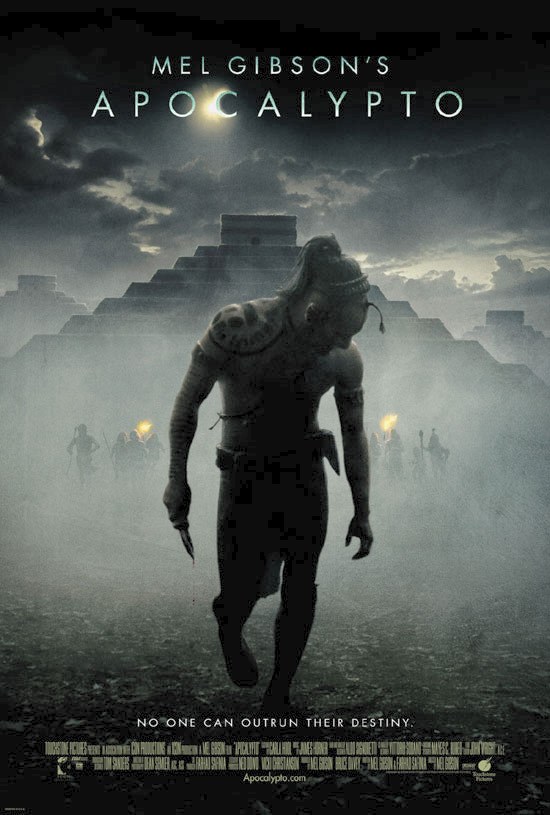
There’s something exhilarating about Mel Gibson’s total repudiation of
the conventional wisdom of Hollywood these days — which is to say, the
conventional wisdom of large corporations slowly and inexorably losing
touch with their audiences.
To make a 40-50 million-dollar film with your own money, in the Mayan language, with an
all-unknown and mostly inexperienced cast, is downright heroic — and someday Gibson is going to be numbered among the rebels and mavericks who finally brought the tottering empire of Hollywood to its knees.

Apocalypto isn’t going to be a mega-hit, the way The Passion Of the Christ
was. Though it opened well, its word-of-mouth was terrible and it
will be lucky to earn back its cost, but it’s a fine film — not just
admirable from a conceptual point of view, but very well made, moving
and entertaining.
Gibson gets remarkable performances from his neophyte cast who, like
silent film actors, need to communicate with us primarily with their
bodies, faces and eyes. Gibson has cast extraordinarily striking,
charismatic people in the main roles, but he’s also given them the
creative space and the confidence to wholly inhabit their characters,
to convey their essence to us.
I really don’t see how anyone could call the film racist, though some have — Gibson is an
easy mark for that kind of criticism these days. But to set a whole movie inside a lost and alien culture demonstrates a kind of respect Hollywood, for all its political correctness, would never have the guts to back up with cold hard cash. Gibson’s film is violent, and the tale he chooses to tell might be fairly accused of over-emphasizing the violence of a very violent society — but at the same time we’re not asked to condemn it in a patronizing sort of way, and we’re encouraged to sympathize deeply with many of its characters, without moral qualifications.

There are many bold and powerful images in the film, but there’s also a lot of quick
cutting of blurred shots that create a kind of synthetic excitement, quickening the pulse but taking us out of the environment of the story and into an editing room.
Still, it seems churlish to complain that the film isn’t a masterpiece, since it re-animates and throws us into the middle of a world we could never imagine as clearly through any other medium. What we should complain about is that movies don’t do this sort of thing more often —
that it takes an eccentric filmmaker, working outside of all conventions, to make a film as ambitious as Apocalypto.
